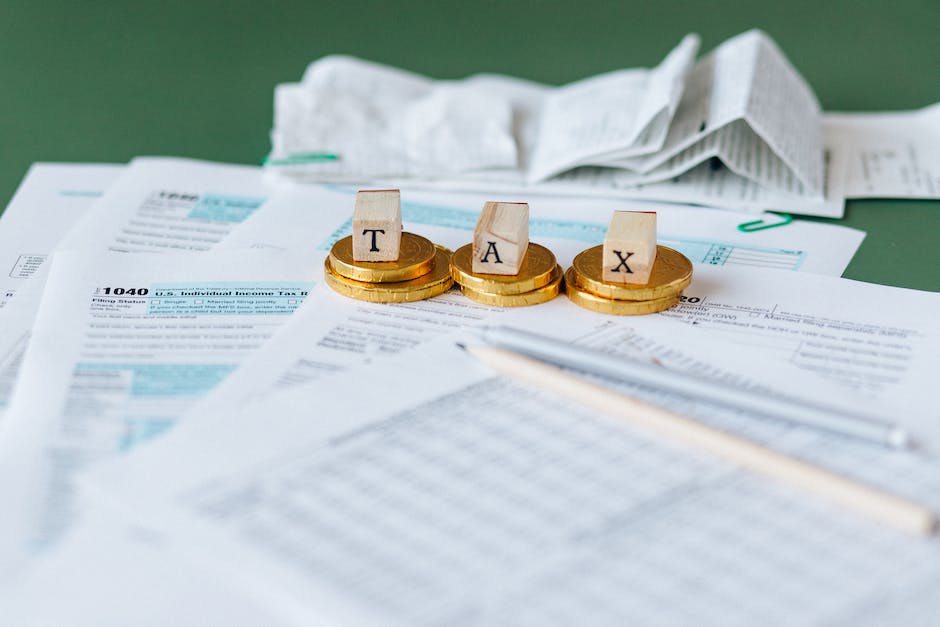As the legalization of cannabis continues to spread across the country, many individuals and industries are taking notice of the potential financial benefits. While much of the focus has been on the industry’s potential to generate revenue, it’s important not to overlook another aspect of legalization: the tax benefits. By legalizing and regulating cannabis, states can collect substantial tax revenue that can help support critical public programs, services, and infrastructure. In this blog post, we’ll explore the tax benefits of legalizing cannabis and what they mean for our communities.
Explanation of how legal cannabis sales generate tax revenue for the government at both state and local levels
Legalizing cannabis can benefit our communities in many ways, including generating tax revenue for the government. When cannabis sales are legal, they can generate tax revenue at both the state and local levels. This tax revenue can be used to fund important community programs and services such as schools, hospitals, roads, and public safety. Additionally, tax revenue can be used to support small businesses and create new jobs in the industry.
At the state level, legalizing cannabis sales can lead to significant tax revenue through sales taxes, excise taxes, and licensing fees. For example, Colorado has generated over $1 billion in tax revenue from cannabis sales since legalization in 2014. These funds have been used to support public education, drug abuse prevention, and mental health services.
At the local level, legal cannabis businesses can generate additional tax revenue through property taxes and other local fees. This can help support local communities by improving infrastructure and services. Additionally, legal cannabis businesses can create new job opportunities, which can help reduce unemployment rates and improve local economies.
Overall, legalizing cannabis sales can have a positive impact on our communities by generating tax revenue that can be used to support important community programs and services. By investing in the cannabis industry, we can create new jobs, support small businesses, and improve our local economies.
Discussion of how this tax revenue can fund public services such as schools, healthcare, and infrastructure improvements
Legalizing cannabis can bring forth a significant amount of tax revenue for our communities. This tax revenue can be used to fund various public services that are critical to our society such as schools, healthcare, and infrastructure improvements. The legalization of cannabis ensures that this revenue is generated legally and ethically, benefiting the community as a whole. With proper legislation, this tax revenue can provide the necessary funds to improve our schools, hospitals, and roads, among other important services. It is time for us to take advantage of the opportunity presented by legalizing cannabis and invest back into our communities leveraging its tax benefits.
Explanation of how cannabis sales tax can be used to fund drug treatment and education programs
Cannabis sales tax creates a unique opportunity for communities to fund necessary drug treatment and education programs. By legalizing cannabis, states can collect taxes from sales of the product and use that revenue to support public health initiatives aimed at reducing drug use and supporting those struggling with substance abuse. These funds can be allocated towards educating the public about the dangers of drug use and funding programs that provide treatment services to those in need. By investing in our communities in this way, we can help to create a safer and healthier society for all.
Description of how legalizing cannabis can create jobs and stimulate economic growth in local communities
Legalizing cannabis can stimulate local economies and create new job opportunities within communities. As more states continue to legalize recreational and medicinal cannabis use, it opens up opportunities for new businesses to emerge, creating jobs in cultivation, distribution, and retail sectors. Additionally, tax revenue generated from the sale of cannabis can be reinvested into local communities and offer funding for education, infrastructure, and social programs. By legalizing cannabis, we can create a sustainable economic model that benefits both businesses and communities alike.
Discussion of how cannabis businesses can also generate business tax revenue and contribute to the local economy
Legalizing cannabis presents an opportunity for businesses to generate revenue through various business taxes, including sales tax and excise tax. Not only that, but the legalization of cannabis also paves the way for job opportunities and economic growth in local communities. As cannabis businesses grow and expand, they create additional jobs, such as growers, budtenders, and administrative positions. With an increase in job opportunities, the local economy benefits as individuals have more money to spend, which in turn benefits other local businesses. Furthermore, these businesses can contribute to the community directly, through charitable contributions or volunteering efforts, and indirectly by providing funding for community projects and programs. By supporting and investing in the legalization of cannabis, we can witness a positive impact on the local economy and foster growth in our communities like never before.
Overview of how legalizing cannabis can reduce black market activity, lowering crime rates and associated costs
Legalizing cannabis can have positive effects on our communities, particularly in reducing black market activity. By creating a legal and regulated market for cannabis, we can channel sales into legitimate channels, rather than allowing illegal drug dealers to continue to profit. This reduces the amount of criminal activity associated with the illicit drug trade, lowering crime rates and associated costs for law enforcement and corrections. Additionally, legalizing cannabis can generate significant tax revenue for local and state governments, which can be used to invest in community development projects, public education, and other important social services. Allowing cannabis to be legally sold also creates job opportunities and can stimulate economic growth in our communities. By considering these benefits, we can see that legalizing cannabis has the potential to create a more positive future for everyone.
Explanation of how taxes from cannabis sales can be used to support law enforcement efforts and public safety measures
Legalization of cannabis can provide numerous benefits to our communities, including tax benefits for local governments. With the sale of legalized cannabis products, substantial tax revenue can be generated which can be used to fund various public safety measures and law enforcement efforts. This is made possible by implementing reasonable regulations and taxes for the cannabis market.
Tax collection from legalized cannabis sales can directly contribute to the prevention of drug-related crimes and help support law enforcement efforts to ensure the public’s safety. With the appropriate allocation of cannabis tax revenues, police departments can increase community policing, reduce drug-related crime rates, and promote safer communities. Furthermore, the tax benefits can be used to fund educational programs or awareness campaigns regarding drug abuse, which can have a preventative impact on the community’s overall health, including drug abuse and addiction.
Communities benefit from the taxable revenue because they can invest in projects like infrastructure, education, or health-related services. These tax revenues could be used to support public education, rehabilitation or treatment of victims of drug abuse, job creation, social equity programs, and much more. The investment of these funds into these programs can ultimately lead to long-term economic and social benefits for the community.
In conclusion, the legalization of cannabis can significantly benefit our communities through the tax revenue generated from the sale of cannabis products. With the right allocation of tax revenue, communities can invest in various public safety measures and law enforcement efforts, contributing to a safer and healthier environment.
Discussion of the potential for legal cannabis sales to generate tourism revenue for communities
As more states legalize cannabis for both medical and recreational purposes, the potential for tax revenue generation becomes increasingly apparent. One potential avenue for revenue generation is through the creation of cannabis tourism industries. In states where cannabis is legal, many businesses are already starting to cater to this new market.
Cannabis dispensaries, cannabis-friendly hotels and restaurants, and even cannabis-themed tours are starting to pop up across legalized states. These businesses not only generate tax revenue, but they also attract tourists who will spend money in local communities. Additionally, the creation of cannabis tourism industries can create new jobs, and boost the overall economy in the region.
Despite some potential negative impacts on the local community, creating a regulated and legalized cannabis market can ultimately benefit many communities. In addition to taxation and tourism, the legal cannabis market can bring in more funding for social programs, educational initiatives, infrastructure improvement, and job creation. By creating a fair and equitable legal framework for cannabis, we can ensure that this emerging industry fosters growth that benefits all members of the community.







